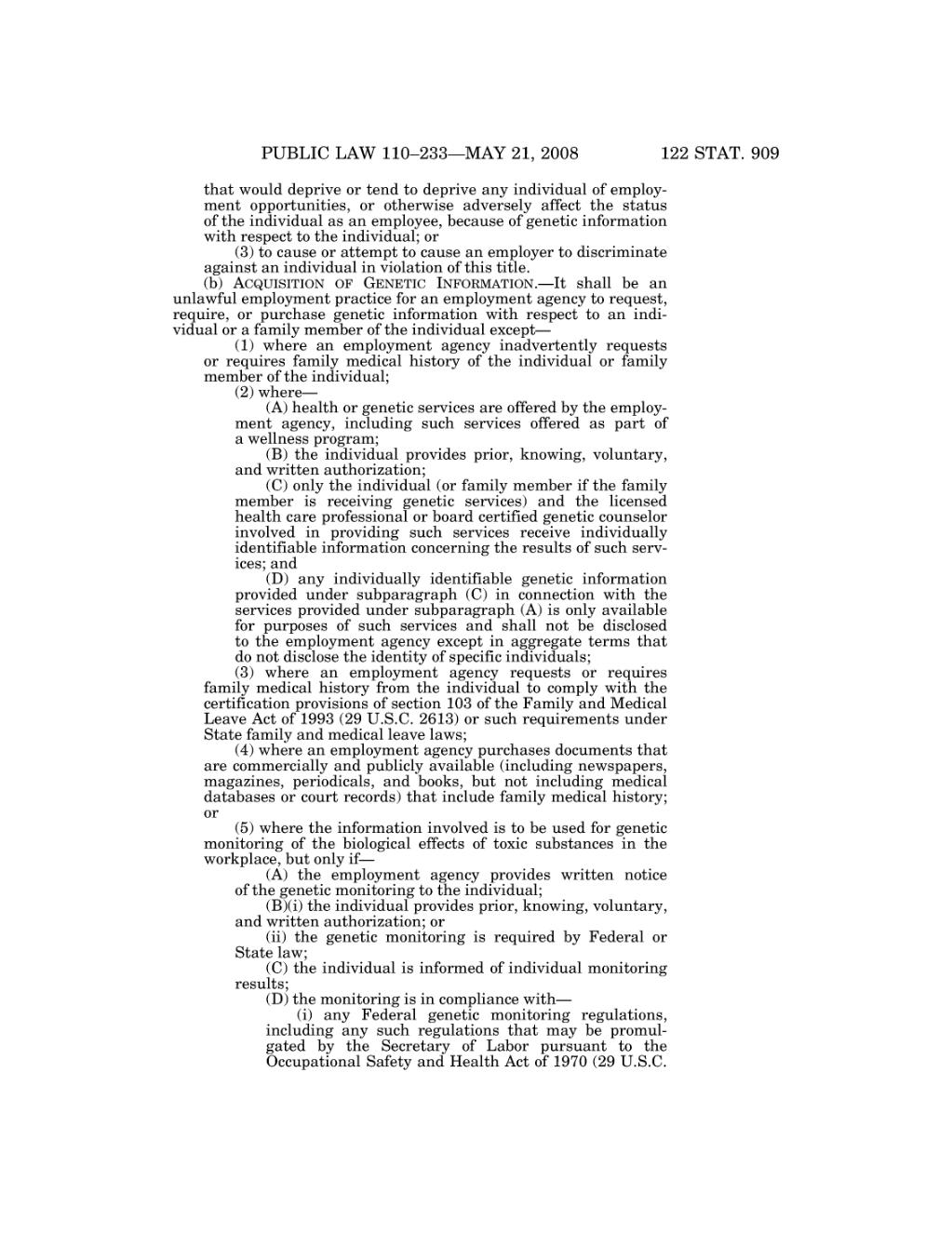12 2 STA T .90 9 PUBLIC LA W 110 – 2 3 3 —M A Y 21 , 200 8tha t would d epriv eorte n d to deprive an y individual o f e m ploy - ment opportunitie s, or otherwise adversely affe c t the status of the individual as an employee, b ecause of g enetic information with respect to the individual
or (3) to cause or attempt to cause an employer to discriminate against an individual in violation of this title . (b) ACQUIS I T I ON O FGE NETIC I NFO RMA TION. — It shall be an unlawful employment practice for an employment agency to re q uest, require, or purchase genetic information with respect to an indi- vidual or a family member of the individual e x cept— ( 1 ) where an employment agency inadvertently requests or requires family medical history of the individual or family member of the individual; ( 2 ) where— (A) health or genetic services are offered by the employ- ment agency, including such services offered as part of a wellness program; ( B ) the individual provides prior, k nowing, voluntary, and written authori z ation; ( C ) only the individual (or family member if the family member is receiving genetic services) and the licensed health care professional or board certified genetic counselor involved in providing such services receive individually identifiable information concerning the results of such serv- ices; and ( D ) any individually identifiable genetic information provided under subparagraph (C) in connection with the services provided under subparagraph (A) is only available for purposes of such services and shall not be disclosed to the employment agency except in aggregate terms that do not disclose the identity of specific individuals; (3) where an employment agency requests or requires family medical history from the individual to comply with the certification provisions of section 1 0 3of the F amily and M edical L eave Act of 1 9 93 (29 U . S .C. 2 6 13) or such requirements under State family and medical leave laws; ( 4 ) where an employment agency purchases documents that are commercially and publicly available (including newspapers, magazines, periodicals, and books, but not including medical databases or court records) that include family medical history; or ( 5 ) where the information involved is to be used for genetic monitoring of the biological effects of toxic substances in the workplace, but only if— (A) the employment agency provides written notice of the genetic monitoring to the individual; (B)(i) the individual provides prior, knowing, voluntary, and written authorization; or (ii) the genetic monitoring is required by Federal or State law; (C) the individual is informed of individual monitoring results; (D) the monitoring is in compliance with— (i) any Federal genetic monitoring regulations, including any such regulations that may be promul- gated by the Secretary of Labor pursuant to the O ccupational Safety and H ealth Act of 19 7 0 (29 U.S.C.
�
